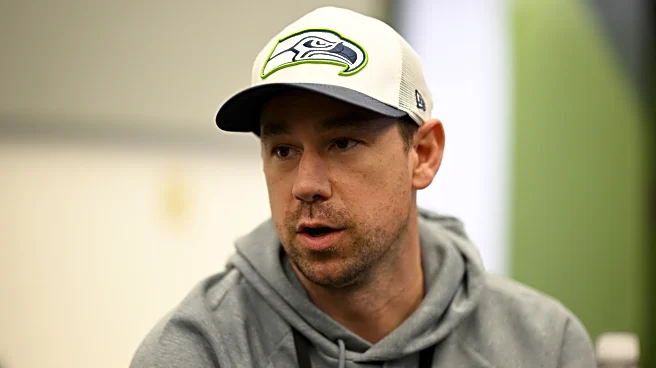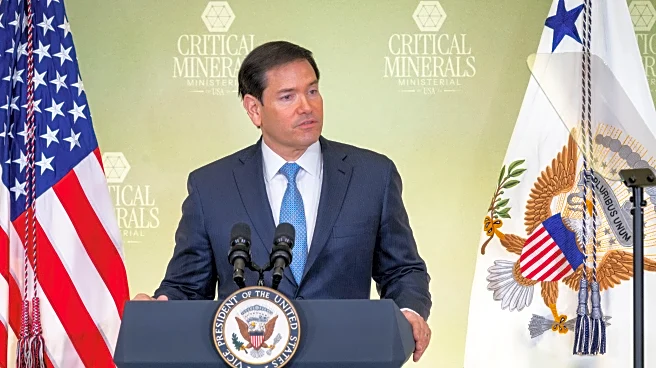What's Happening?
The Federal Communications Commission (FCC) Chair Brendan Carr has made statements threatening ABC, which could have implications for other media companies. Robert Corn-Revere, a former FCC lawyer and current member of the Foundation for Individual Rights and Expression (FIRE), discussed the potential impact of Carr's actions. Carr has expressed a desire to regulate speech in the public interest, a shift from his previous stance that the FCC does not have such a mandate. Corn-Revere criticized Carr's approach, highlighting the FCC's historical sensitivity to First Amendment rights and the Communications Act, which prohibits censorship. The FCC has occasionally penalized broadcasters for obscenity, but its actions are typically governed by court decisions. Carr's threats to revoke broadcast licenses over content disagreements have raised concerns about the FCC's independence and its adherence to constitutional safeguards.
Why It's Important?
The actions of FCC Chair Brendan Carr could have significant implications for media companies and the broader landscape of free speech in the United States. If the FCC begins to exert pressure on broadcasters based on content, it could lead to a chilling effect on media freedom and independence. This situation underscores the tension between government regulation and free speech rights, as outlined in the First Amendment. Media companies may face increased scrutiny and potential penalties, which could alter programming decisions and impact public discourse. The FCC's role as an independent agency is crucial in maintaining a balance between regulation and freedom of expression, and Carr's approach may challenge this balance.
What's Next?
The potential consequences of Carr's threats could lead to legal challenges from media companies and advocacy groups. If the FCC attempts to revoke licenses based on content, affected parties may seek judicial intervention to uphold First Amendment protections. Media companies might also reconsider their programming strategies to avoid regulatory conflicts. Additionally, there could be increased advocacy for legislative or judicial clarification on the FCC's role in regulating speech. Stakeholders, including media organizations and free speech advocates, are likely to monitor the situation closely and respond to any actions taken by the FCC.
Beyond the Headlines
The broader implications of Carr's threats extend to the ethical and legal dimensions of media regulation. The FCC's actions could set a precedent for how government agencies interact with media companies, potentially influencing the future of broadcast regulation. This situation raises questions about the balance between government oversight and media independence, as well as the role of political influence in regulatory decisions. The long-term impact could involve shifts in how media companies approach content creation and distribution, as well as how they engage with regulatory bodies.











